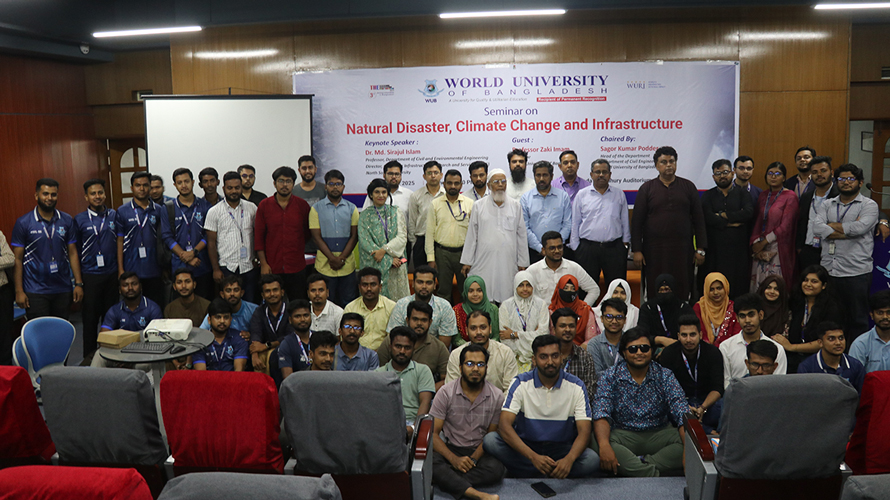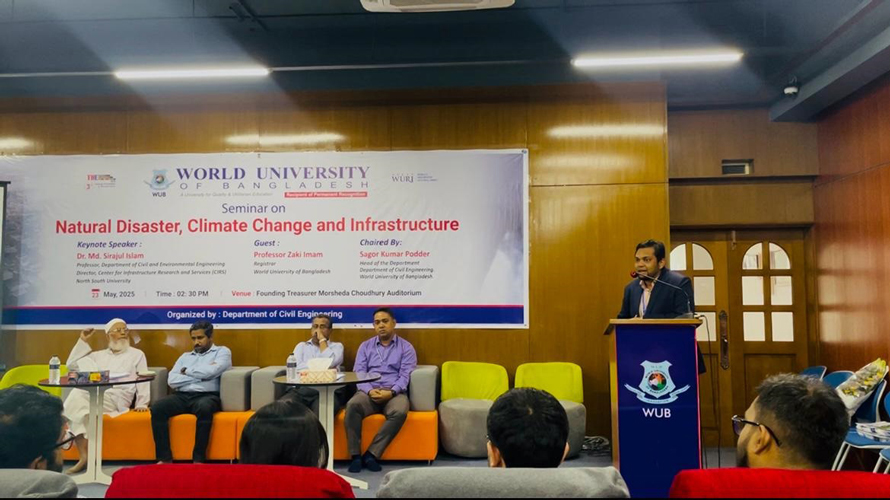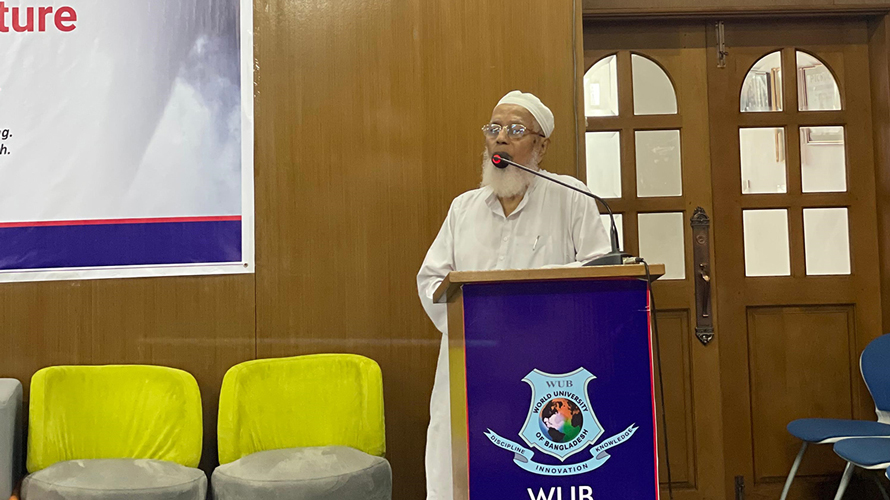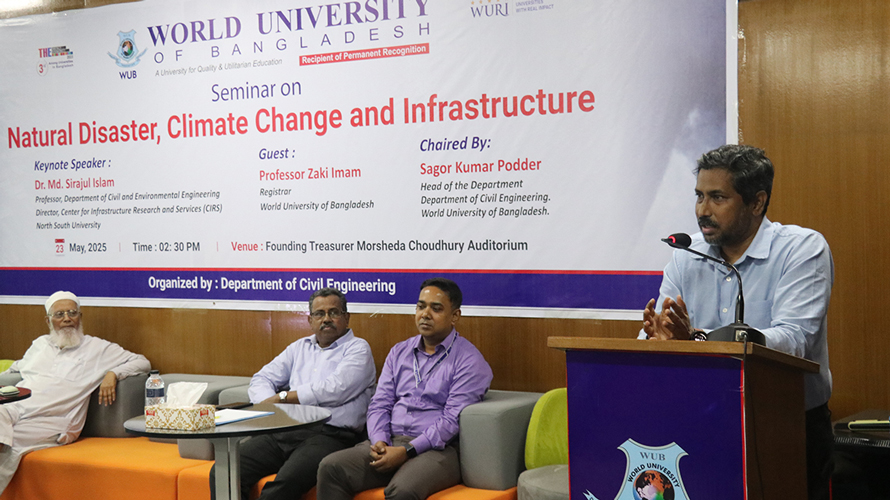
The Department of Civil Engineering at the World University of Bangladesh (WUB) convened a pivotal national seminar on “Natural Disaster, Climate Change and Infrastructure” on May 23, 2025, positioning the university as a key actor in the policy dialogue to end poverty in all its dimensions. The event served as a direct platform for advocating the integration of climate resilience and sustainable water management into national and local development planning, a critical strategy for protecting vulnerable communities from being plunged into or deeper into poverty by climate shocks and water insecurity.
The seminar featured high-level expertise, including a keynote address from Dr. Md. Sirajul Islam, who emphasized the urgent need for resilience-based approaches to safeguard infrastructure and manage vital water resources. By bringing together academia, government bodies like the Board of Accreditation for Engineering and Technical Education (BAETE), and industry professionals, WUB facilitated the multi-stakeholder collaboration essential for formulating and implementing effective policies.
Delivering the keynote address, Dr. Md. Sirajul Islam, Professor of Civil and Environmental Engineering at North South University and Member of the Board of Accreditation for Engineering and Technical Education (BAETE), Institution of Engineers, Bangladesh (IEB), stressed the growing vulnerability of infrastructure to climate-induced disasters and the critical interlinkage with water systems. He called for integrating resilience-based approaches into planning to counter the risks of floods, cyclones, river erosion, and water scarcity. Dr. Islam emphasized sustainable engineering practices, including climate-adaptive water conservation and pollution control for the wider environment, proactive disaster preparedness, and adaptation measures as crucial for protecting both rural and urban communities. "Conscious water usage and protecting our natural water bodies are not separate goals but are foundational to climate-resilient infrastructure that lifts people out of poverty," he stated.
The seminar also featured remarks from Professor Zaki Imam, Registrar of WUB, who attended as special guest. He reaffirmed the university’s commitment to addressing pressing societal challenges through education and research. According to him, such academic forums not only broaden knowledge but also inspire students to critically examine the role of engineers in safeguarding society against environmental threats, including the preservation and equitable distribution of clean water.
Chairing the session, Mr. Sagor Kumar Podder, Head of the Department of Civil Engineering at WUB, underscored the importance of equipping future engineers with the skills to design sustainable solutions for climate challenges. "Our curriculum and research must empower the next generation to build infrastructure that not only withstands floods but also harvests rainwater, recycles greywater, and prevents pollutants from entering our rivers and groundwater—this is how we build truly sustainable and poverty-alleviating communities," he pointed out. He emphasized that collaboration between academia, government, and industry is essential to advance climate-resilient and water-conscious infrastructure.
The event concluded with a collective call to action for stronger cross-sectoral partnerships to develop disaster-resilient infrastructure systems that prioritize integrated water resource management. Faculty members, students, and participants agreed that collaborative efforts are vital in mitigating the escalating impacts of climate change on Bangladesh's fragile water ecosystem.
The Department of Civil Engineering expressed appreciation to the keynote speaker, distinguished guest, faculty, and students whose active participation ensured the seminar’s success. With discussions spanning vulnerability, adaptation, sustainability, and the pivotal role of water stewardship, the seminar served as a significant platform for knowledge-sharing and reaffirmed WUB’s dedication to preparing engineers capable of confronting one of Bangladesh’s most urgent challenges—building infrastructure that can withstand natural disasters while ensuring water security in an era of climate uncertainty.






